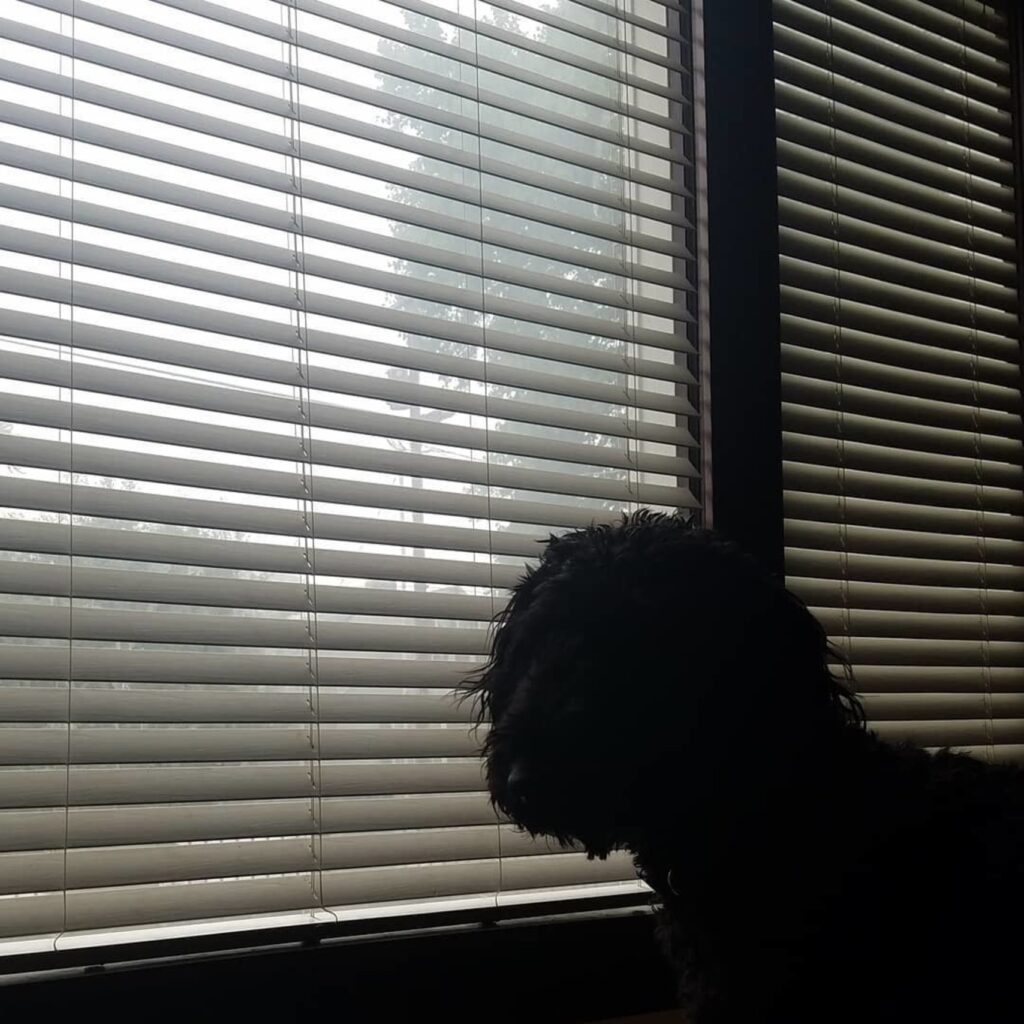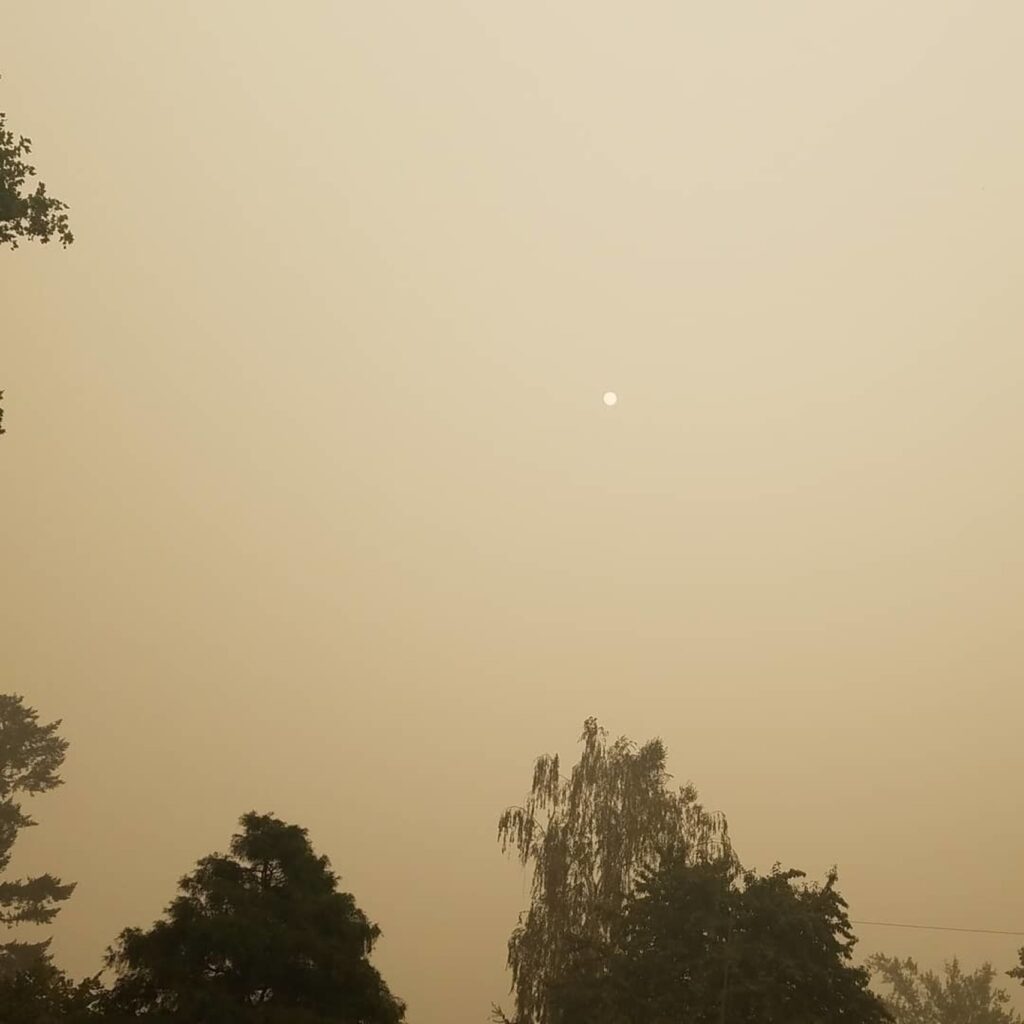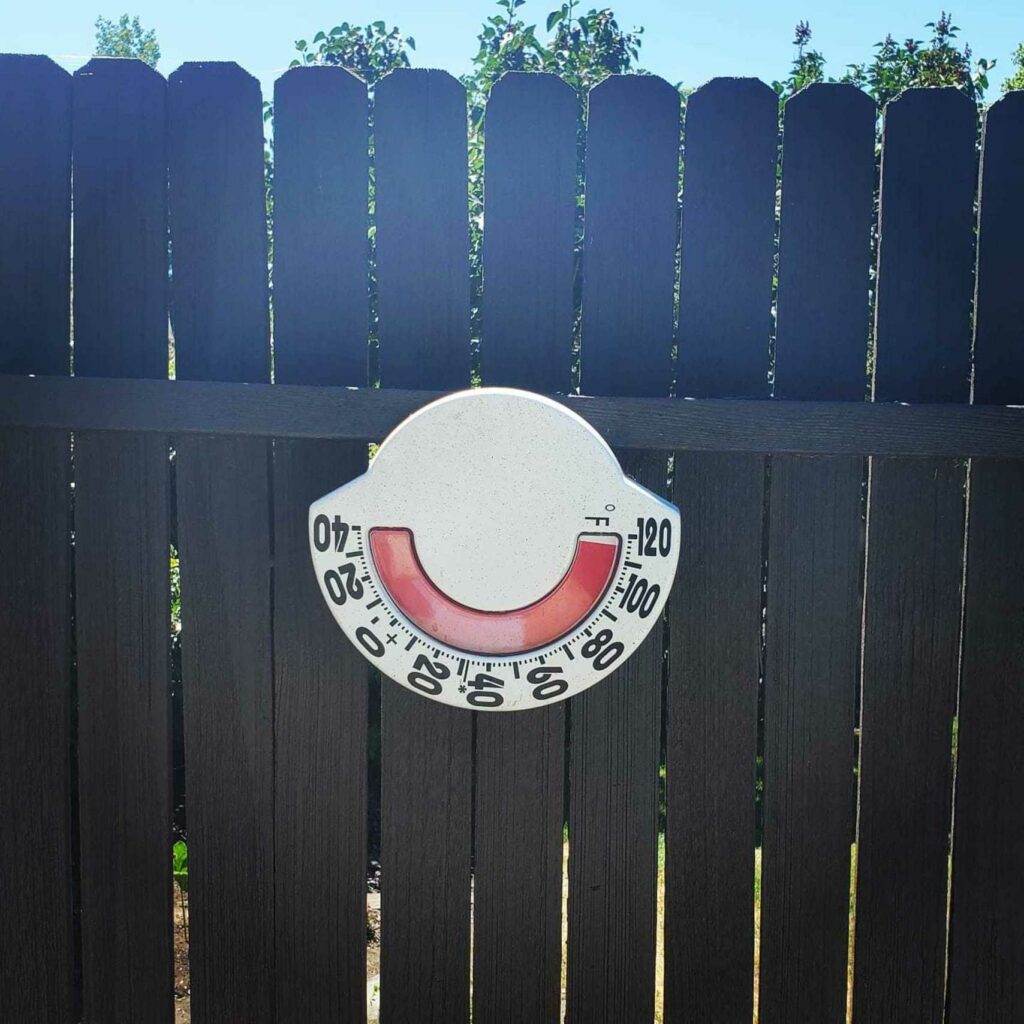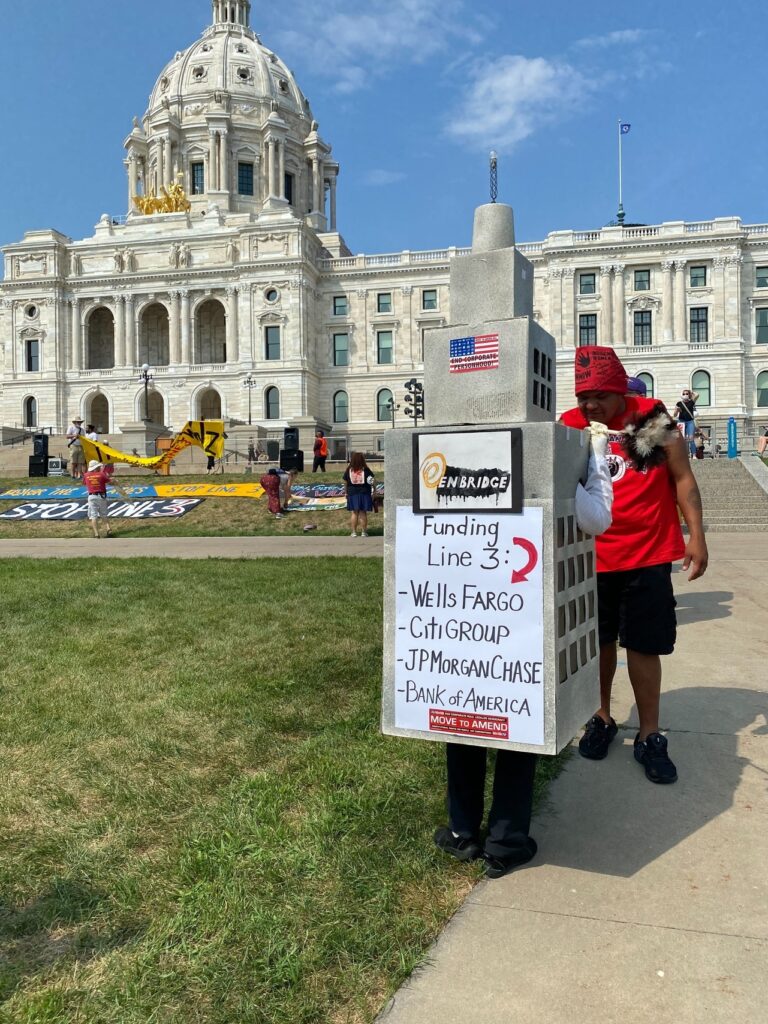West Coast wildfires, Gulf Coast floods, drought in the Midwest: climate change worries are showing up in therapists’ offices.
Earlier this year, a decades-long fight between city officials of Minneapolis, Minnesota, and residents of the highly-polluted East Phillips neighborhood came to an end. Neighbors successfully gained control of an abandoned manufacturing plant sitting on toxic levels of arsenic. The city had had plans to demolish it, which residents feared would release more harmful chemicals into the air. Now, community advocates are renovating the building into an indoor farm, housing complex, and community hub.
Despite that major win, pollution worries in Minneapolis are still alive. Activists are now pushing for the Hennepin Energy Recovery Center, one of Minnesota’s seven trash incinerators, to be shut down over public health and environmental concerns.
Elizabeth Padilla, a psychotherapist in nearby Bloomington, has noticed an uptick in patients wanting to talk during sessions about local environmental issues such as these.
“I'm seeing some clients from those neighborhoods that are really stressed out and really worried,” Padilla said.
Padilla is part of a growing number of mental health professionals across the country who are hearing about climate concerns from their patients. Eight percent of Americans say they would “probably” or “definitely” be interested in discussing their feelings about global warming with a counselor or therapist — or are already doing so — according to a 2022 survey from the Yale Program on Climate Change Connection and the George Mason University Center for Climate Change Communication.
Most of Padilla’s patients come to her to discuss issues related to obsessive-compulsive disorder, anxiety, and grief, but a few years ago, she began taking on patients with eco-anxiety — a type of anxiety experienced by people distressed about climate doom.
Padilla is a climate-aware therapist, meaning that she’s trained to help patients address their feelings about the climate crisis. The practice is a relatively new addition to the field of psychology. Environmental philosopher Glenn Albrecht coined the term eco-anxiety in 2011.
Lily Seaman, a clinical social worker in eastern Washington, wrote her Master's thesis on how often climate change comes up in therapy. Before she started research in 2015, she received some pushback about the idea.
“When I proposed the research, it was ‘that has nothing to do with psychology,’” Seaman said.
Seaman is now a generalist mental health practitioner, but she often hears concerns about climate change during her work at Whitman College’s counseling center. “When there is smoke in the air, and it's not going away, and/or when there's something in the regional climate that's going on, [clients] will bring that up in casual conversation,” Seaman said.
The college’s campus is in a dry, flat, rural area with “a lot of wheat fields and orchards,” according to Seaman. The area’s environmental concerns mainly revolve around wildfires and smoke.“This weekend our air quality index was up in the three hundreds,” Seaman said. (Air quality values higher than 301 are considered hazardous, according to the EPA’s U.S. Air Quality Index. Levels between zero and fifty are considered good.)
“My throat's pretty sore right now, just because of walking my dog and having to be outside,” Seaman added.
The students that come to see Seaman are usually not seeking her out specifically to talk about the climate. They’re there to discuss other issues, but the environment comes up naturally. “‘How was your week?’ ‘Oh man, this smoke, huh?’ and that's where it comes in,” Seaman said. When climate change arises, Seaman often leans in to ask a bit more. “Suddenly, the floodgates open,” Seaman said. “There's a lot of emotion that bubbles up that can sometimes take the client by surprise.”
“I think this summer, for a lot of people, has been really difficult,” said Kristen Jackson Banister, a psychotherapist in Tucson, Arizona. Americans across the country have struggled with the hottest summer on record. Arizona experienced a record-setting thirty-one consecutive days of extreme heat between June and July.
“I've had a lot of people reach out this summer with climate anxiety,” Banister said.
Things aren’t much better a few states over. “We're having triple digit days,” said Joanna Person-Michener, a licensed professional counselor in Fayetteville, Arkansas. In her region, there are also concerns over hydrological systems and keeping Arkansas’ waterways clean. Floods are at the top of residents’ minds.
“In the Southeast, we have noticed a profound new intermittent pattern of drought and flooding because of greenhouse gas emissions and more water in the atmosphere,” Person-Michener said.
Agriculture is the basis of Arkansas’ economy. Recurring climate issues can take a toll on those relying on the state’s natural resources for their livelihood. “People who are more connected to the land and who are outside have greater difficulty staying in denial about the changes that are happening,” Person-Michener said. “I've been hearing through the grapevine and through volunteering with the Citizens' Climate lobby that farmers are struggling, and they're more aware of changes.”
Another cohort uniquely aware of climate change is students. When Chelsea Rissner was a school social worker, kids would sometimes come to see her after learning about environmental issues in science class.
“They felt like, ‘wow, this is really terrifying,’” said Rissner, who’s now in private practice in Brooklyn.
Rissner notes that young people today are seeing climate change effects more closely at hand than previous generations. “They're seeing the wildfires on the news, they're seeing people displaced, they're learning about it more explicitly in school,” Rissner said. “They're having more conversations.”
A lot of young people channel this anxiety into activism, which can be a helpful way of coping. But ongoing advocacy can sometimes lead to burnout.
“The issues that come up in therapy are like, ‘wow, I'm really burnt out and I wanna take a break,’” Seaman said. “‘How do I give myself permission? Like I have so much shame or guilt about taking a step back. Can I do that?’”
That’s why climate-aware therapists don’t push their clients to get involved with advocacy right off the bat. Instead, the first step is usually just validating their climate concerns. Discussing the specific issues in a patient’s region can be helpful.
When Padilla discusses local issues — like worries about Minnesota’s trash incinerators — she hears patients wanting to talk through feelings of frustration and sadness.
“These people are having things done to their community, right? They not only disagree, but they're loudly voicing their disapproval of it and still being ignored,” Padilla said.
After unpacking which climate issues are especially emotionally disruptive, practitioners employ different methods to teach patients how to cope. Padilla has found that it’s helpful for patients to sit with their thoughts.
“You feel an uncomfortable feeling — whether it's sadness or fear. Can you tolerate sitting with that for seven minutes?” she said.
Some need additional tools to help handle those thoughts. Padilla uses thought diffusion, a methodology that has people observe their thoughts without attaching meaning to them.
“Anxiety's telling you a really loud story, but that's just a story — it's just a thought,” Padilla said. “I want you to stay with your body and with your feelings instead of with that story.”
The ways these thoughts manifest looks different on a case-by-case basis. Rissner recalls one patient with whom “it took a few sessions [for the patient] to come down from that really scary thought that ‘oh my God, is that world gonna end?’” That kind of thought can introduce layers of existential crisis, especially when it comes to religious and spiritual beliefs about end-of-the-world scenarios.
Much climate anxiety is tied to uncertainty, and, as with obsessive compulsive disorder, uncertainty can lead to rumination if not properly managed.
“There's a lot of worry and speculation about ‘if this goes through, what will happen? Will my asthma get worse? Will my kids be okay?’” Padilla said.
Individuals can feel helpless due to the enormity of climate issues. “I always tell them ‘yeah, we do not have total control over what happens to the climate system, not on an individual level,’” Person-Michener said. “We do the best that we can with our individual choices in terms of lifestyle and sustainability, in terms of civic engagement.”

Many climate-aware practitioners report that their patients find it helpful to learn specific climate psychology terms. For example, solastalgia is a term referring to homesickness for an environment that has experienced change. These terms can provide a “sense of validation,” according to Person-Michener, allowing patients to feel less alone in their emotions.
Another methodology involves working with the body, including techniques like breathwork and meditation — “different ways of grounding and centering and just helping ourselves to be a little more regulated,” Jackson-Banister, a somatic practitioner, said. “And when I say ‘regulated,’ I'm talking specifically about the nervous system.”
Also, body-centered therapy encourages patients to pay attention to how climate effects are impacting their emotions. Jackson-Bannister notes, for example, that it’s common for people to feel angry when they're really hot.
“I think that one of the ways we can work with ourselves, and also address what happens in the collective around heat, is to put our intention on kindness,” Jackson-Banister said.
In other words, try to approach conflicts with empathy, especially when it’s hot out. Higher temperatures can cause people to feel more emotional distress than usual.
Other coping tips include taking a break from climate news when it becomes overwhelming, spending time in nature, and finding community.
“Whether it's in-person or online, [connecting to community] is something that I really strongly encourage,” Padilla said.
“There's so little that gets talked about,” Seaman agreed, “and it means that people really have to hold their own distress as a private individual thing instead of a collective issue.”
What’s most important is breaking the shared silence around climate anxiety.
What You Can Do
- Join a climate café or participate in a program like the Good Grief Network, a 10-step program focused on peer-to-peer support for eco-distress.
- Seek out a climate-aware therapist: https://www.climatepsychology.us/climate-therapists.





